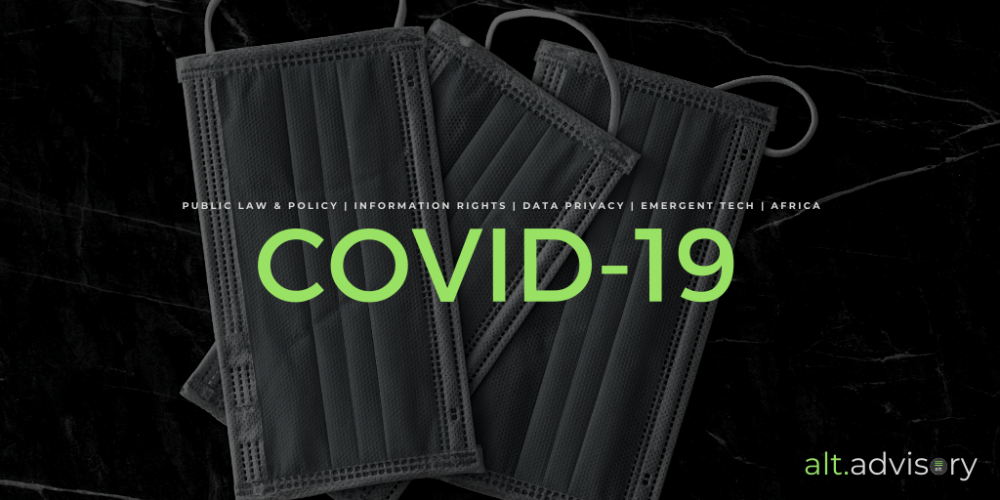African Commission provides guidance on realising economic, social and cultural rights during COVID-19
On 4 June 2020, the Working Group on Economic, Social and Cultural Rights (Working Group) of the African Commission on Human and Peoples’ Rights (African Commission) issued a press release on the impact of COVID-19 on economic, social and cultural rights in Africa. As noted, while some states have implemented relevant measures as part of their national response to COVID-19, there are a number of economic, social and cultural rights that have been negatively affected, such as the rights to health, work, education, food, water and the derived right to social security.
The Working Group notes further that the focus on COVID-19 has resulted in less attention being given to maternal and infant mortality, with there being a risk of cutting back on the gains made in this regard, as well as in respect of other diseases. As indicated by the Working Group, the negative impact of COVID-19 on economic, social and cultural rights is worse among vulnerable and marginalised groups who make a modest living on a daily basis, barely enjoy the right to housing and do not have equitable access to health, education, water, sanitation, food and work under normal circumstances. Furthermore, the Working Group raises concern that, due to weak and ineffective regulation of private actors, consumers experience additional threats as scarcity, price manipulation and sudden inflation of essential commodities have been reported.
Accordingly, the Working Group calls on states parties to adopt the following measures:
- Take steps to ensure the full realisation of economic, social and cultural rights in the African Charter on Human and Peoples’ Rights and other human rights instruments, during and after the COVID-19 pandemic.
- Strengthen health care systems required for the prevention and treatment of COVID-19, as well as address maternal and infant health and other diseases.
- Empower individuals and communities with timely, comprehensive and accessible information about COVID-19 prevention and treatment.
- Commence bilateral and multilateral negotiations to ensure that any proven medical treatment and vaccine for COVID-19 is affordable and available and will benefit their populations.
- Ensure that all frontline medical personnel are protected from infection and receive adequate remuneration for their services in a timely manner.
- Regularly review restrictions to ensure that economic activities can resume with the necessary precautions to prevent the spread of the pandemic.
- Protect the right of all employees at every level to work in a safe working environment that will protect them from infection and that the minimum wage and terms and conditions of work are respected.
- Provide stimulus packages, loans, grants and other incentives to the business sector, including the informal sector, whilst ensuring that such packages are not abused.
- Take steps to curb tax evasion and avoidance, profit shifting to tax havens and other illicit financial flows by multinational enterprises which deprive states of the much-needed revenue required to address the impact of the pandemic.
- Provide assistance to individuals, families and communities, including vulnerable groups and at-risk groups, through at least a minimum essential level of food distribution, social welfare and other social security measures, in order to mitigate the impact of COVID-19 on their economic, social and cultural rights.
- Pay attention to the education sector and take necessary steps to provide quality education with the aid of online courses, free data for such courses and the use of other technology in order to ensure that pupils and students do not lose the academic year; and where there is no access to technology, manually distribute learning materials to pupils and students and ensure there is a catch-up programme post-COVID-19.
- Strengthen consumer protection regulations and institutions, and regulate private actors involved in social services delivery so that their involvement does not worsen the situation for individuals, families and communities.
- Support states in their national response to COVID-19, especially towards vulnerable and marginalised groups.
The press release is accessible here.
Please note: The information contained in this note is for general guidance on matters of interest, and does not constitute legal advice. For any enquiries, please contact us at [email protected].


